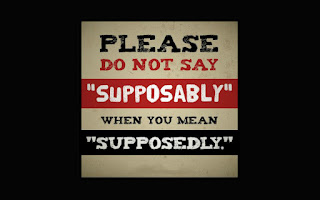This guest post was written by Claire Wentz at CaringFromAfar.com who wants you to know the scoop on choosing the right senior care facility. She has links to other websites which I found extremely helpful. I have faith in Claire that it helps if you're looking!
----------------------------------
Statistics show that seven out of every ten people will need assistance of some form during their lifetimes. In 2018, over 900,000 individuals resided in residential care facilities. According to the numbers, individuals entering their 65th year have a close to 70% likelihood of requiring some kind of long-term support or aid in the future.
If your loved ones have reached the age where they need more help than you can offer, nursing homes or assisted living facilities may be the best option. However, locating the right one involves many considerations. The Tales of a Stroke Patient presents the following article on what you need to consider when researching senior care facilities.
Does the Establishment Provide the Services Needed To Fulfill Your Loved One's Special Needs?
Not all facilities possess the means to provide specialized care. For instance, not all of them have the resources and trained faculty to deal with problems arising from dementia. Loved ones who suffer from Alzheimer's or a similar disease typically need specialized memory care services. Urinary incontinence is another condition that may require more care than some facilities offer.
Another factor to consider is that assisted living homes and nursing homes are not the same. If your loved one is unable to cook and needs around-the-clock medical care and extensive aid performing daily activities, a nursing home may be more suited to those needs. While assisted living facilities offer access to similar services, the aid offered is not as expansive and these establishments provide more independence, such as allowing residents to cook, share rooms and participate in a wider range of recreational activities. Visit facility websites, social media pages and the facilities themselves to verify exactly what services they do and do not offer.
Does the Establishment Meet Certain Standards?
With all the news stories circulating about poor nursing homes, it has become even more imperative to personally check the quality of the institutions that will house and care for your loved ones in their remaining years. Read reviews to learn from other people's experiences. Talk to the staff and gauge their enthusiasm and competence. Individuals that seem to enjoy their work are often more invested in their patients and provide better care.
Ask questions, such as "Are the workers required to undergo background checks before being hired?" and "Are employees licensed and trained?" Is the facility equipped to deal with dietary needs and physical disabilities? Does it have safety and handicap measures such as clearly marked exits, wheelchair ramps, handrails and good lighting? How frequently does the staff check on the residents? Walk around and get a feel of the facility, if possible.
Does the Establishment Fall Within the Affordable Range?
The average cost associated with nursing homes and assisted living facilities varies based on location. Medicare may cover a portion of the expense up to a certain time, while Medicaid can pay for all of it but has stringent qualification requirements. Pick an affordable facility.
If you need funds, one way to acquire them is by selling a home. However, beware of hidden costs and remember that there are other considerations such as realtor fees when figuring out how much you can make from the sale. For example, if there is a mortgage, you need to look at the outstanding balance. The price you set will also be influenced by the average realty prices in the area. If you need help figuring this out, there are helpful online calculators that can estimate how much you could make from the sale. This will give you a reasonable estimate on which to base your decisions.
Taking the time to perform research and evaluate each facility helps ensure your loved one lives in comfort. When choosing, considering the cost and closeness is also vital.
Brought to you by Joyce Hoffman and















